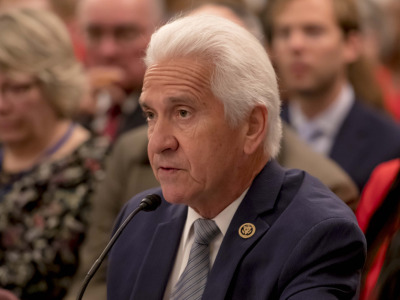The first thing U.S. Trade Representative Katherine Tai and Agriculture Secretary Tom Vilsack did after the U.S. lost its second USMCA dairy battle with Canada was vow to keep fighting, offering statements similar to those released by U.S. lawmakers and U.S. dairy groups. But that battle may be at an end after two exhaustive legal fights that both ended in a decision by a three-member dispute panel.
“We will continue to work to address this issue with Canada, and we will not hesitate to use all available tools to enforce our trade agreements and ensure that U.S. workers, farmers, manufacturers, and exporters receive the full benefits of the USMCA,” Tai said. She did not elaborate on what those “available tools” are.
Similarly, Vilsack said in a separate statement: “We will continue to voice deep concerns about Canada’s system. We remain focused on securing the market access we believe Canada committed to under the USMCA and we will continue exploring all avenues available to achieve that goal.”
But Becky Rasdall, vice president of trade policy and international affairs at the International Dairy Foods Association, says there may be no more avenues at USMCA — or CUSMA as the deal is known in Canada.
“I think the question's been asked and answered, and I'm not sure you know what the next steps are,” she said.
Still, several U.S. lawmakers say they believe there are still ways to eke another win out of USMCA for the U.S. dairy sector.
“As co-chair of the Congressional Dairy Caucus, I remain committed to supporting dairy producers nationwide,” Rep. Mike Simpson, R-Idaho, said in a statement. “I will continue to work to ensure fair market access for our dairy farmers and hold Canada to its USMCA commitments.”
And House Republican Conference Chair Elise Stefanik, R-N.Y., stressed she will be working “to ensure that USMCA is enforced to allow fair market access for our dairy farmers.”
But lawmakers are also predicting that the latest loss to Canada will leave long-lasting scars on the U.S.-Canada trade relationship as well as public support for USMCA.
USMCA — the rewrite of the North American Free Trade Agreement — got strong bipartisan support on Capitol Hill, but the dispute loss will “have a lasting and negative impact on the bilateral and economic partnership between our countries,” says Rep. Adrian Smith, R-Neb. “I call on Canada to make the changes necessary to come into compliance.”
Canada doesn’t appear to be willing to do that. In fact, Canada’s reaction to its loss in the first dairy dispute was to make it harder for U.S. companies to sell many dairy products to Canadian buyers.
Canada's key change was restricting quotas to large processors and distributors, effectively prohibiting retailers, food service operators and restaurants from getting a share of the quotas. That was also the core point of discord in the second dispute that the U.S. called for in January.
It’s easy to be “in the know” about what’s happening in Washington, D.C. Sign up for a FREE month of Agri-Pulse news! Simply click here.
“Well, it's like trying to sell products to your competitor, right?” Rasdall said. “If we're making butter, ice cream, or yogurt, or whatever it is, how are we going to effectively sell that to someone who makes butter, ice cream, or yogurt in Canada?”
But when it comes to USMCA as a dispute process, Tai was firm in a statement that “the report of the panel is now final” after only one of the three panelists ruled in favor of the U.S.
The loss came as a surprise to Rasdall, who stressed that the dairy industry was confident of winning the case because the U.S. had a lot of “really strong evidence” going into the dispute. The result has raised a lot of questions about the future of the USMCA and future agreements.
 Rep. Jim Costa, D-Calif.
Rep. Jim Costa, D-Calif.One lawmaker who says he’s lost some faith in the system is Rep. Jim Costa, D-Calif., who told Agri-Pulse he had long discussions about USMCA enforcement with former USTR Robert Lighthizer before the deal was concluded.
“I think like any treaty, and these are two of our neighbors, one to the south and one to the north, is only as good as the ability to enforce the elements of the agreement,” Costa said.
The issue with Mexico is the country’s determination to ban the importation of genetically engineered white corn as well as eventually stop buying GE feed corn. That dispute is well underway and a dispute panel has been formed.
“Do I think we're going to win all of those dispute resolutions?” Costa said. “No. Do I want to make sure that we have a fair opportunity, whether it's supply management in Canada on dairy, or whether it's phytosanitary standards of Mexico? I mean, these things always come up. They came up before there was USMCA. And they will continue to be a source of concern, because countries oftentimes use non-tariff barriers to get leverage or to help areas of significant economy in their country.
“You need to continue to hold your neighbors, in this case, our partners and USMCA accountable and continue to fight for what you believe."
Jaime Castaneda, senior vice president for trade policy at the U.S. Dairy Export Council, agrees that there is no longer an avenue for dispute in USMCA, noting the Biden administration may have to get creative if it still wants Canada to change its dairy quota ways.
“The U.S. has a number of different options to address a trade problem,” he said. “You saw that during the Trump administration with a number of different trade tools.”
For more news, go to www.Agri-Pulse.com.


